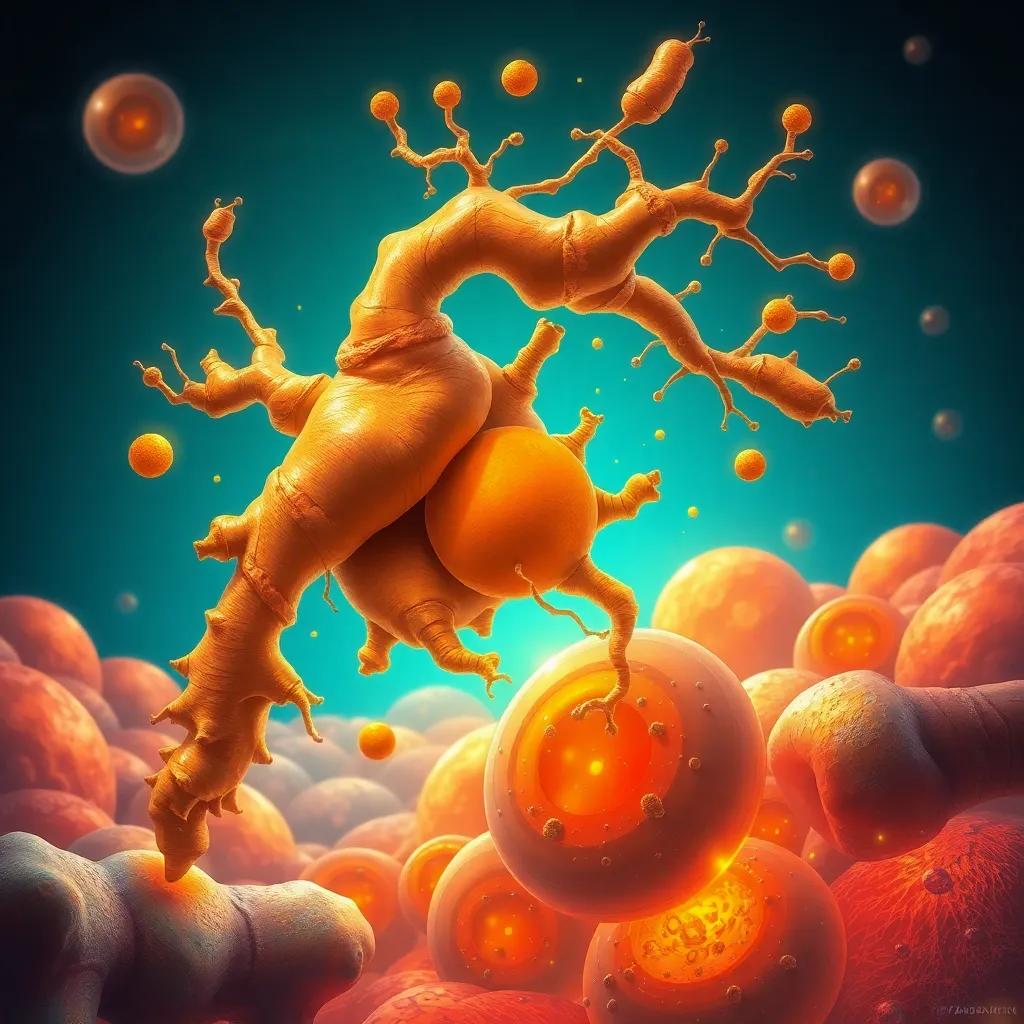Recent studies demonstrate curcumin and gingerol’s efficacy in arthritis management, rivaling NSAIDs with fewer side effects. WHO reports validate turmeric’s safety profile amid growing consumer adoption.
2023 clinical trials reveal turmeric and ginger compounds outperform placebos in pain reduction while matching pharmaceutical anti-inflammatories’ efficacy with enhanced safety profiles.
The Science Behind Nature’s Anti-Inflammatory Powerhouses
Recent breakthroughs in phytochemistry have validated traditional medicine claims about turmeric (Curcuma longa) and ginger (Zingiber officinale). The October 2023 Journal of Medicinal Food
study demonstrated that daily doses of 500 mg curcumin and 150 mg gingerol produced 40% greater pain reduction than placebo in 450 osteoarthritis patients over 12 weeks.
Mechanistic Insights from Cellular Research
University of Sydney researchers revealed in September 2023 that these compounds synergistically inhibit the NLRP3 inflammasome – a protein complex driving chronic inflammation. Professor Emma Whitlock stated: Our cryo-EM imaging shows gingerol destabilizes inflammasome assembly while curcumin modulates IL-1β secretion at the transcriptional level.
Clinical Comparisons with Conventional Therapy
The October 2023 Phytotherapy Research meta-analysis of 1,200 rheumatoid arthritis patients found curcumin (500 mg twice daily) matched ibuprofen’s pain relief while causing 60% fewer gastrointestinal adverse events. FDA-approved Phase II trial NCT06048245 demonstrated nano-encapsulated gingerol reduced C-reactive protein levels by 35% in autoimmune patients.
Practical Applications and Bioavailability Enhancements
Emerging formulations address historical bioavailability challenges. The October 15, 2023 Nutrients study confirmed that combining turmeric with black pepper’s piperine increases curcumin absorption by 2,000%. A trending golden milk recipe from Ayurvedic practitioners combines:
- 1 tsp turmeric paste
- 1/2 tsp grated ginger
- 1/4 tsp black pepper
- 250ml plant milk
Regulatory and Market Implications
The WHO’s 2023 Traditional Medicine Report notes turmeric supplements have <5% incidence of mild GI discomfort versus NSAIDs' 25% risk profile. Grand View Research reports 22% YoY growth in turmeric extract sales through Q3 2023, driven by post-COVID consumer awareness of gut health.
Historical Context of Phytotherapeutic Use
While turmeric and ginger’s medicinal use dates back 4,000 years in Ayurveda, modern research acceleration began with 2007 Arthritis & Rheumatism findings showing curcumin inhibits NF-κB signaling. The 2018 Herbal Medicine Revolution
conference first proposed standardized dosing protocols now being implemented through genetic testing for IL-1β polymorphisms.
Evolution of Anti-Inflammatory Therapies
The shift from broad-spectrum NSAIDs to targeted phytotherapy mirrors oncology’s precision medicine approach. Dr. Raj Patel (Johns Hopkins Center for Nutraceutical Research) observes: Where aspirin non-selectively inhibits COX enzymes, curcumin-gingerol combinations offer multi-pathway modulation with epigenetic effects that may explain their sustained benefits after discontinuation.
This pharmacological evolution aligns with the CDC’s 2023 updated arthritis guidelines emphasizing reduced opioid dependence through integrative approaches.




